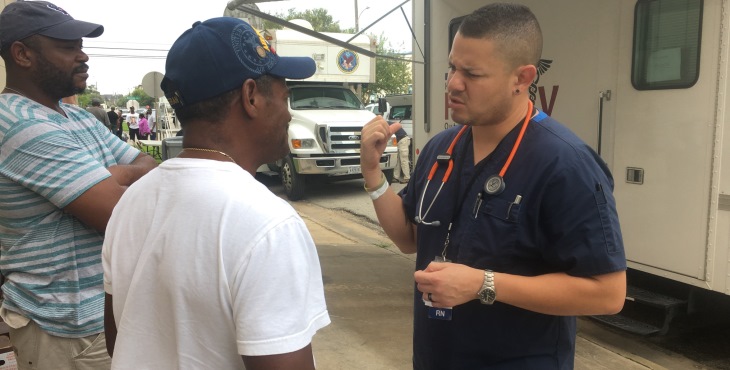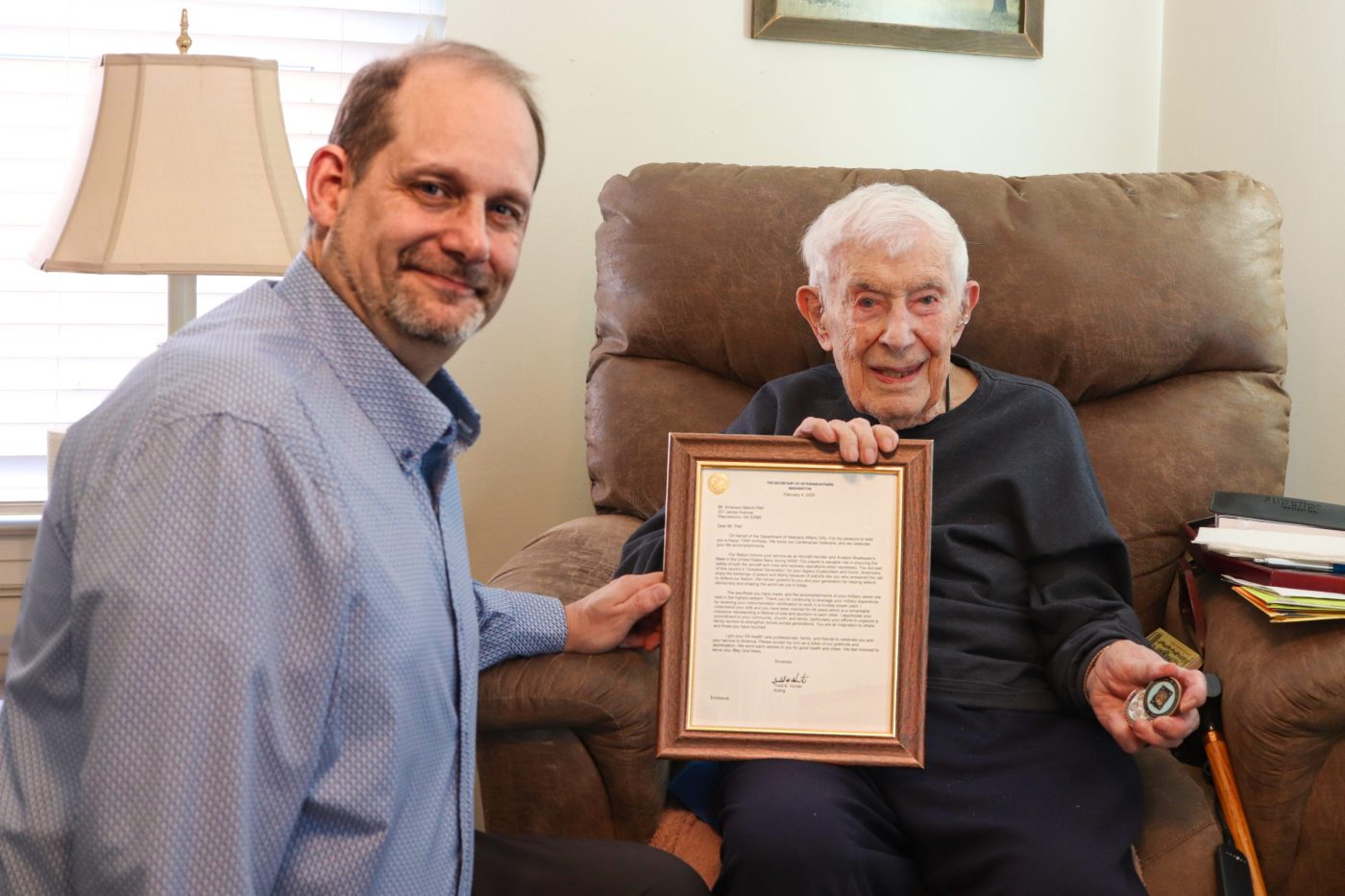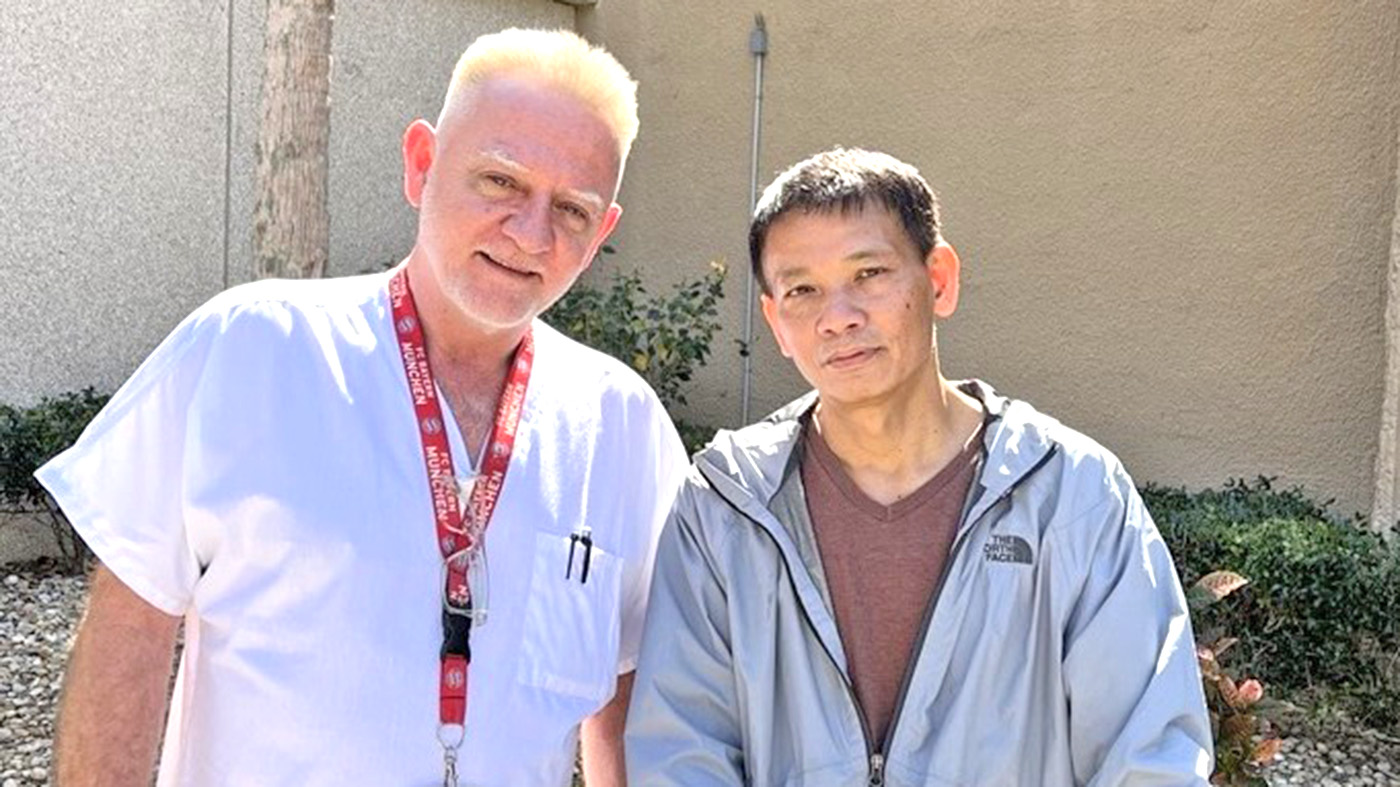Disasters, whether natural or man-made, require health care professionals with a willingness to share their lives with others, in any part of the country. Following the aftermath of Hurricane Harvey in Houston and surrounding cities, VA medical personnel have bonded to serve, not only Veterans, but anyone requiring health care.
The Disaster Emergency Medical Personnel System is VA’s main deployment program for clinical and non-clinical staff to an emergency or disaster. The system currently operates in mobile medical units in Houston, and prepare to travel any distance where medical assistance is most needed.

David Barron, VA provider from El Paso, treats Veteran Richard Arnwine at the VA’s mobile medical unit stationed at Lone Star Veterans Association
The mobile medical units meet many needs of both Veterans and non-Veterans, living in remote locations, unable to seek medical assistance because of distance or hardship, aggravated by Hurricane Harvey.
According to Shiloh Ramos, a primary care physician, from the Milwaukee VA, he’s served in several disaster operations including Hurricanes Katrina and Ike.
“It is normal to start out slow, but as word spreads of our location we find ourselves seeing many patients during the day,” said Ramos. “We treat anyone needing medical assistance.”
VA personnel from different locations staff the mobile units. David Barron says, following Hurricane Harvey’s landfall, he was dispatched from El Paso, Texas, taking an early morning flight to Dallas. The vehicle was driven from Dallas to Houston, joining forces with other VA health care staff.
“We are in an area that can reach Veterans,” said Barron. “I signed up for the VA to help Veterans; It’s been great.”
U.S. Army Veteran Richard Arnwine visited an office nearby and heard about the mobile medical units. Having one in his neighborhood made it possible for him to have a needed medical visit.
“I decided to come in and have my blood pressure checked. Like many others, I’m dealing with the storm,” said Arnwine. “I’ve been working for the past five days cleaning out my house and surrounding areas. I’ve gotten dizzy, and knew I wasn’t going to drive to the VA hospital. Luckily this unit is here, and I was able to make it. My blood pressure is high, and now I’m going back to see a doctor. I am so grateful for this mobile unit and the VA.”
“This gives me great satisfaction, and I will do this anytime I am needed,” added Ramos. “The level of gratitude from Veterans and non-Veterans is tremendous. They are so grateful thanking you, and we have to remember what they are going through. It’s nothing I’ve never experienced.”
“I’m grateful to assist the disaster management team,” said Yvette Wright, a registered nurse, also form El Paso. “We are a forward support team, and as a Veteran myself, I am thankful to provide any care and assistance I can.”
Arnwine sums up his street side mobile doctor visit, like this. “These men and women from the VA are from all parts of the United States. They are from out of town. I am so grateful they are here to help us out. Thank God for these people.”
About the author: Shannon Arledge is a public affairs officer for the Veterans Health Administration.
Topics in this story
More Stories
Army Veteran Clayton Crosley teaches tai chi to fellow Veterans who find relief through the ancient practice.
When asked if he's a hero, 100-year-old WWII Navy Veteran Emerson Pell gave a short, modest response: “I was just a normal guy.”
A member of the Care Transition Clinic got to demonstrate his I CARE values for an Army Veteran.





